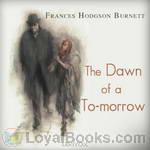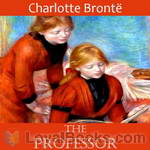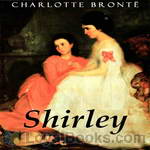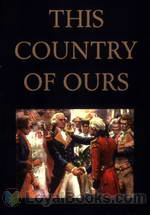|
Books Should Be Free Loyal Books Free Public Domain Audiobooks & eBook Downloads |
|
|
Books Should Be Free Loyal Books Free Public Domain Audiobooks & eBook Downloads |
|
Top Authors |
|---|
|
Book type:
Sort by:
|
By: Jules Verne (1828-1905) | |
|---|---|
 Off on a Comet
Off on a Comet
The story starts with a comet that touches the Earth in its flight and collects a few small chunks of it. Some forty people of various nations and ages are condemned to a two-year-long journey on the comet. They form a mini-society and cope with the hostile environment of the comet (mostly the cold). The size of the 'comet' is about 2300 kilometers in diameter - far larger than any comet or asteroid that actually exists. | |
 Journey to the Centre of the Earth
Journey to the Centre of the Earth
The story involves a German professor (Otto Lidenbrock in the original French, Professor Von Hardwigg in the most common English translation) who believes there are volcanic tubes going toward the center of the Earth. He, his nephew Axel (Harry), and their guide Hans encounter many adventures, including prehistoric animals and natural hazards, eventually coming to the surface again in southern Italy. | |
 The Underground City or The Child of the Cavern
The Underground City or The Child of the Cavern
Covering a time span of over ten years, this novel follows the fortunes of the mining community of Aberfoyle near Stirling, Scotland. Receiving a letter from an old colleague, mining engineer James Starr sets off for the old Aberfoyle mine, thought to have been mined out ten years earlier. Starr finds mine overman Simon Ford and his family living in a cottage deep inside the mine; he is astonished to find that Ford has made a discovery of the presence of a large vein of coal. Accompanying Simon Ford are his wife, Madge, and adult son, Harry. | |
 Doctor Ox's Experiment
Doctor Ox's Experiment
An early, light-hearted short story, published in 1872 by Jules Verne. It takes place in the Flemish town of Quiquendone, where life moves at an extraordinarily tranquil pace. Doctor Ox has offered to light the town with a new gas, but actually has other plans in place. | |
 Facing the Flag
Facing the Flag
Like The Begum's Millions, which Verne published in 1879, it has the theme of France and the entire world threatened by a super-weapon (what would now be called a weapon of mass destruction) with the threat finally overcome through the force of French patriotism. | |
 Topsy-Turvy
Topsy-Turvy
Topsy Turvy is a translation of Sans dessus dessous (1889) . This anonymous translation was first published by J. G. Ogilvie (New York, 1890). We meet our old friends Barbicane and J.T. Maston from “Earth to the Moon” who now give us their own approach to the topic of “global warming”. Although they are searching for coal and not oil, readers will find that the auction of the Arctic energy reserves has a definite 21st century ring. | |
 The Tribulations of a Chinaman in China
The Tribulations of a Chinaman in China
The rich and flegmatic Kin-Fo loses his fortune and decides to die, but not before experiencing some strong emotions. He asks his friend Wang to kill him before a given date. Everything changes when Kin-Fo discovers he is not poor after all and he sets on a journey around China, trying to find his friend to cancel their deal. | |
 Adventures of Captain Hatteras, Part 2: The Field of Ice
Adventures of Captain Hatteras, Part 2: The Field of Ice
The novel, set in 1861, describes adventures of British expedition led by Captain John Hatteras to the North Pole. Hatteras is convinced that the sea around the pole is not frozen and his obsession is to reach the place no matter what. Mutiny by the crew results in destruction of their ship but Hatteras, with a few men, continues on the expedition. ( Wikipedia) | |
 Celebrated Travels and Travellers, vol. 1
Celebrated Travels and Travellers, vol. 1
The famous writer of great adventure stories Jules Verne wrote also several lesser known, but good non-fiction works. "Celebrated travels and travellers" tells the story of geographical discovery in the same well written and precise manner we are used to finding in Verne’s fiction books. This book is divided into 3 volumes. This is the first volume, named the "Exploration of the World" and it covers the period in the World's history of exploration from B.C. 505 to the close of the 17th century. The second and third volumes are respectively entitled "The great navigators of the 18th century" and "The great navigators of the 19th century".Coordinated by Kristine Bekere and Kajo. | |
By: Frances Hodgson Burnett | |
|---|---|
 The Secret Garden
The Secret Garden
One of the most delightful and enduring classics of children's literature, The Secret Garden by Victorian author Frances Hodgson Burnett has remained a firm favorite with children the world over ever since it made its first appearance. Initially published as a serial story in 1910 in The American Magazine, it was brought out in novel form in 1911. The plot centers round Mary Lennox, a young English girl who returns to England from India, having suffered the immense trauma by losing both her parents in a cholera epidemic... | |
 A Little Princess
A Little Princess
Frances Hodgson Burnett’s book "A Little Princess" begins as seven year old Sara Crewe is dropped off at a boarding school by her rich father. She has grown up in India and has lived a very pampered life. Even though she is rich, she is very friendly to everyone and the students all love her. Unfortunately, the woman in charge of the school does not like Sara and when her father dies on a business trip, the head mistress is angry that she will not get the money she is owed for Sara’s care... | |
 Little Lord Fauntleroy
Little Lord Fauntleroy
In mid-1880s Brooklyn, New York, Cedric Errol lives with his Mother (never named, known only as Mrs Errol or “dearest”) in genteel poverty after his Father Captain Errol dies. They receive a visit from Havisham, an English lawyer with a message from Cedric’s grandfather, Lord Dorincourt. Cedric is now Lord Fauntleroy and heir to the Earldom and a vast estate. The Earl wants Cedric to live with him and learn to be an English aristocrat. He offers Mrs Errol a house and income but refuses to meet or have anything to do with her... | |
 Sara Crewe: or, What Happened at Miss Minchin's Boarding School
Sara Crewe: or, What Happened at Miss Minchin's Boarding School
The story told in Frances Hodgson Burnett’s classic novel, A Little Princess, was first written as a serialized novella, Sara Crewe, or What Happened at Miss Minchin’s, and published in St. Nicholas Magazine, in 1888. It tells the story of Sara Crewe, an intelligent, wealthy, young girl at Miss Minchin’s Select Seminary for Young Ladies. Sara’s fortunes change when her father dies, and she goes from being a show pupil and parlor boarder at the school to a drudge, but eventually she finds happiness and a home again. | |
 The Lost Prince
The Lost Prince
“The Lost Prince” is about Marco Loristan, his father, and his friend, a street urchin named The Rat. Marco’s father, Stefan, is a Samavian patriot working to overthrow the cruel dictatorship in the kingdom of Samavia. Marco and his father, Stefan, come to London where Marco strikes up a friendship with a crippled street urchin known as The Rat. Marco’s father, realizing that two boys are less likely to be noticed, entrusts them with a secret mission to travel across Europe giving the secret sign: ‘The Lamp is lighted... | |
 The Shuttle
The Shuttle
Rosalie Vanderpoel, the daughter of an American multimillionaire marries an impoverished English baronet and goes to live in England. She all but loses contact with her family in America. Years later her younger sister Bettina, beautiful, intelligent and extremely rich, goes to England to find what has happened to her sister. She finds Rosalie shabby and dispirited, cowed by her husband's ill treatment. Bettina sets about to rectify matters. She meets Lord Mount Dunstan, an impoverished earl, who lives nearby and they fall in love, but he cannot speak because it would look as if he were after her money... | |
 Theo
Theo
It's described as "A SPRIGHTLY LOVE STORY" and it is written by F. H. Burnett, "one of the most charming among American writers!" | |
 The Dawn of a To-morrow
The Dawn of a To-morrow
A wealthy London business man takes a room in a poor part of the city. He is depressed and has decided to take his life by going the next day to purchase a hand gun he had seen in a pawnshop window. The morning comes with one of those 'memorable fogs' and the adventure he has in it alters his decisions and ultimately his life. | |
 A Lady of Quality
A Lady of Quality
Set in late 1600's England, the story follows the life of a woman living an unconventional life. The loves of her life and all of its ups and downs are included. | |
 Little Saint Elizabeth and Other Stories
Little Saint Elizabeth and Other Stories
She had not been brought up in America at all. She had been born in France, in a beautiful château, and she had been born heiress to a great fortune, but, nevertheless, just now she felt as if she was very poor, indeed. And yet her home was in one of the most splendid houses in New York. She had a lovely suite of apartments of her own, though she was only eleven years old. She had had her own carriage and a saddle horse, a train of masters, and governesses, and servants, and was regarded by all the children of the neighborhood as a sort of grand and mysterious little princess, whose incomings and outgoings were to be watched with the greatest interest.... | |
 In the Closed Room
In the Closed Room
This is a short story about a shy, quiet little girl living in a big city. When her parents are offered the opportunity to take care of a house in the suburbs for the summer she meets another little girl in the house and they become playmates. (Introduction by Linda Andrus) | |
 Emily Fox-Seton
Emily Fox-Seton
Have you ever wondered what happened to Cinderella after she married the prince? Have you ever asked yourself if it was really "happy ever after?" Actually, in this Victorian melodrama, it's not. 35-years-old Emily Fox-Seton, quite penniless and a little lonely, saves herself from becoming an old maid by agreeing to a marriage proposal from the marquess of Walderhurst, thus becoming "one of the richest Marchionesses in England". She is naïve, kind and good. She doesn't believe that people are really willing to hurt her, but why are all these strange accidents happening?This novel is divided into 2 parts... | |
 A Fair Barbarian
A Fair Barbarian
The setting is a small English village in the 19th century. When her niece shows up on her doorstep unexpectedly, a quiet spinster finds her life turned upside down. | |
 Robin
Robin
Starting with a summary of the 1922 novel The Head of the House of Coombe, which followed the relationships between a group of pre-WWI English nobles and commoners, this sequel, called Robin, completes the story of Robin, Lord Coombe, Donal and Feather. (Introduction by Linda Andrus) | |
 His Grace of Osmonde
His Grace of Osmonde
His Grace of Osmonde, being the portions of that nobleman's life omitted in the relation of his Lady's story presented to the world of fashion under the title of 'A Lady of Quality'Set in late 1600's England, the story follows the life of a woman living an unconventional life. The loves of her life and all of its ups and downs are included. And as above, has more of the story of the Duke who becomes the love of her life. | |
 That Lass O' Lowrie's 1877
That Lass O' Lowrie's 1877
Frances Hodgson Burnett was born and grew up in Manchester, England, and emigrated to the United States with her family at the age of 16. For her first novels, written in Knoxville, Tennessee and published in New York, she drew upon her knowledge of life and speech of the Lancashire working classes. Set in a Lancashire mining town, That Lass o' Lowries is a gritty, and at times brutal, tale of romance across the classes, which stands in stark contrast to her later work. | |
By: Charlotte Brontë (1816-1855) | |
|---|---|
 Jane Eyre
Jane Eyre
This timeless novel highlights the abuse and neglect that the orphaned Jane Eyre faced while growing up. This story opens with Jane Eyre being shipped off to be cared for by her uncle Mr. Reed who lived at the Gateshead Hall. Her uncle was always kind to her but his wife, Sarah Reed was anything but. Sarah’s son John and Sarah’s two daughters also contributed to Jane’s torment. Jane was excluded from all family activities and found solace only in her books and dolls. One day John knocked her down and she tried to defend herself... | |
 The Professor
The Professor
The book tells the story of a young man named William Crimsworth. It describes his maturation, his loves and his eventual career as a professor at an all-girls’ school. | |
 Shirley
Shirley
Shirley is an 1849 social novel by the English novelist Charlotte Brontë. It was Brontë's second published novel after Jane Eyre (originally published under Brontë's pseudonym Currer Bell). The novel is set in Yorkshire in the period 1811–1812, during the industrial depression resulting from the Napoleonic Wars and the War of 1812. The novel is set against a backdrop of the Luddite uprisings in the Yorkshire textile industry. | |
By: Henrietta Elizabeth Marshall (1867-1941) | |
|---|---|
 Our Island Story
Our Island Story
Tailored specially to make history more palatable and interesting to children, Our Island Story, by Henrietta Elizabeth Marshall, is a charmingly illustrated volume that promises hours of delight for parents as well as children. Beginning with the myths and legends about Albion, the author ensures that she captivates the child's imagination from the very first page. Unlike today's dry and non-committal history tomes that are prescribed in schools, Our Island Story is full of lyrical prose, literary allusions, heroic and tragic characters, the hunger for power and the glory of empire... | |
 This Country of Ours
This Country of Ours
History made interesting for young readers—This Country of Ours by Henrietta Elizabeth Marshall provides a simple and easy to comprehend way of looking at the history of the United States. Arranged chronologically in seven long chapters, it presents events in a story form, making them memorable and very different from other formats. One of the challenges that writers of history face is about fleshing out the characters and making the bland repetition of dates and dynasties seem relevant to modern day readers... | |
 Stories of Beowulf Told to the Children
Stories of Beowulf Told to the Children
The brave warrior, Beowulf, comes to the aid of King Hrothgar when he hears that Grendel, a horrible monster, is terrorizing the inhabitants of Hart Hall. Beowulf heroically battles Grendel, the Water Witch, and a fierce dragon. | |
By: Edward Gibbon (1737-1794) | |
|---|---|
 History of the Decline and Fall of the Roman Empire
History of the Decline and Fall of the Roman Empire
Spanning a period of nearly 1500 years, this monumental work of history tracks the orbit of one of the greatest Empires of all time. The sheer scale and sweep of the narrative is breathtaking in its ambitious scope and brings to vivid life the collapse of a magnificent military, political and administrative structure. Proceeding at a brisk pace, the original fourteen volumes describe debauched emperors, corrupt practices, usurpers and murderers, bloody battles, plunder and loot, barbarian hordes, tumultuous events like the Crusades and invaders like Genghis Khan and many more... | |